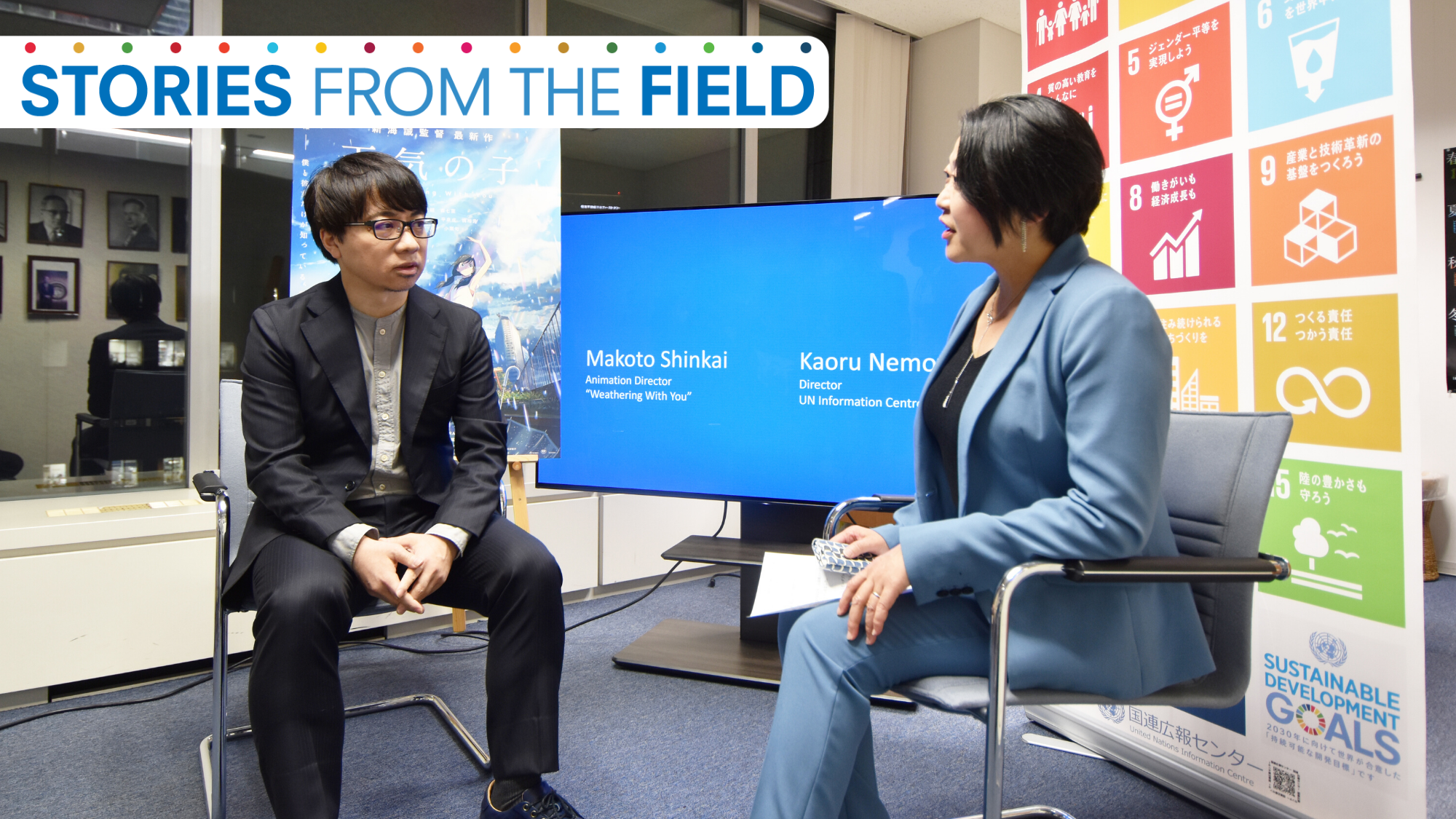“There is a clear difference in how people read the film’s message about climate change.” – Makoto Shinkai
Growing up in a rural town in Nagano in Japan, animation director Mr. Makoto Shinkai always felt that the sky represented beauty. So, he was shocked to see the recent unprecedented destructions caused by heavy rains, typhoons, heat, and many other natural disasters around the world.
The unfolding climate crisis served as a source of inspiration for his new film “Weathering With You”. However, after the film was released in the summer of 2019, Mr. Shinkai was surprised to see different reactions by the audience to the film’s messages.
“We removed words like ‘climate change’ and ‘global warming’ because we did not want people to think the film is trying to preach to them. People are very sensitive to such an attitude, and they will keep themselves away from such things. […] (Still,) it is possible to find some kind of message about climate change and global warming in the film. I think some people easily read them, while others totally did not pick it up. For instance, my feeling is that almost none of the Japanese audience linked climate change to this film.”
Mr. Shinkai adds that he was hardly asked about climate change from media in Japan as well as those in Russia and China. That was not the case when he visited the USA, the UK, France, and India. Climate change was the main topic of the discussion, and so was the conversation he had with the audiences in those countries.
“In certain countries in Europe, I think consumers are turning away from products or services by companies that are not eco-conscious. Audiences in such countries will read the film’s messages in such a context. […] Journalists in India also asked questions related to climate change. India is one of the main players in climate change. They are experiencing massive climate impact and severe air pollution, but the country also relies on coal as cheap energy.”
“On the other hand, I feel excessive adaptation to natural disasters is in Japanese society because they are prone to various types of natural disasters for a long time. There seems to be a sense in the society that nature is way beyond human control and that human is no match to nature. We can say that there are adaptability and perseverance in people’s perception, but people may be simply giving up. It can also be called Japanese people’s modesty, but in our world where concrete action is needed to fight climate change, this attitude can function negatively.”
“Really, I found the differences very clear when I talk with people. The situation differs from one country to another.'”
Youth and climate change in the real world
Mr. Shinkai also referred to Greta Thunberg, the teenage climate activist from Sweden, and the circumstances Japanese youth are in today.
 “Climate change shows intergenerational issues. I think Greta’s anger reflects such differences.”
“Climate change shows intergenerational issues. I think Greta’s anger reflects such differences.”
“If political movement is a movement that is trying to make the world a better place, I have the impression that the movements on the climate crisis by youth are almost the only way for them to demonstrate their political will. Young people in Europe are demonstrating and taking political action on climate change precisely because they are seriously thinking about their future. They really feel that if they don’t take action now, it (the consequence) will bounce back to them. They are so logical, and I am impressed with their rational actions.”
At the same time, Mr. Shinkai acknowledges the difficulties for people to stand up for their future, even if they know the consequence of not doing so.
“Many people know that climate change is happening right around them and that it will worsen. Yet, there are more serious matters for them. They are not earning enough money. They are too busy to even watch TV. Surviving today is more important.”
The role of the filmmaker and their wish to contribute to social good
Still, in the real world, we need to take action to protect our future, says Mr. Shinkai. So how can people be motivated to pay more attention to climate change and look straight into the future?
“There is a limit to people’s money and time, (especially) free time. These are rapidly shrinking for the younger generation. Every service is competing to catch people’s attention there.”
“To make people come to the theatre in such circumstances, outstanding efforts and strategy are needed. We drew detailed visuals that look superb on screen, created music that shakes people’s emotions, and we waded through the communications approaches to identify what we should bring to whom. So, if you want people to take action on climate change, you need to put in the same energy and planning by all odds like we did.”
Mr. Shinkai stresses that filmmakers share the wish to make the world a better place even though making a film is an economic activity.
“Films merely preaching justice will not reach the audience. Even so, I think the audience also doesn’t simply want to enjoy seeing films; I think they want to see something that strikes them and changes their life or how they see the world.”
“Films, social media, social games, and calls to action on climate change are competing to catch people’s limited time, money, and attention. So, I hope something good or something that makes people happy is in every one of them, even in the slightest degree. We are making films with this aspiration.”
“I will be more than happy if the audience knows that deep down in ‘Weathering With You,’ there was the shock I received from climate change.”
Story from UNIC Tokyo

